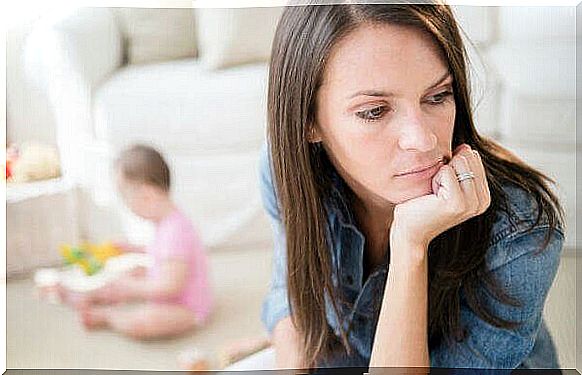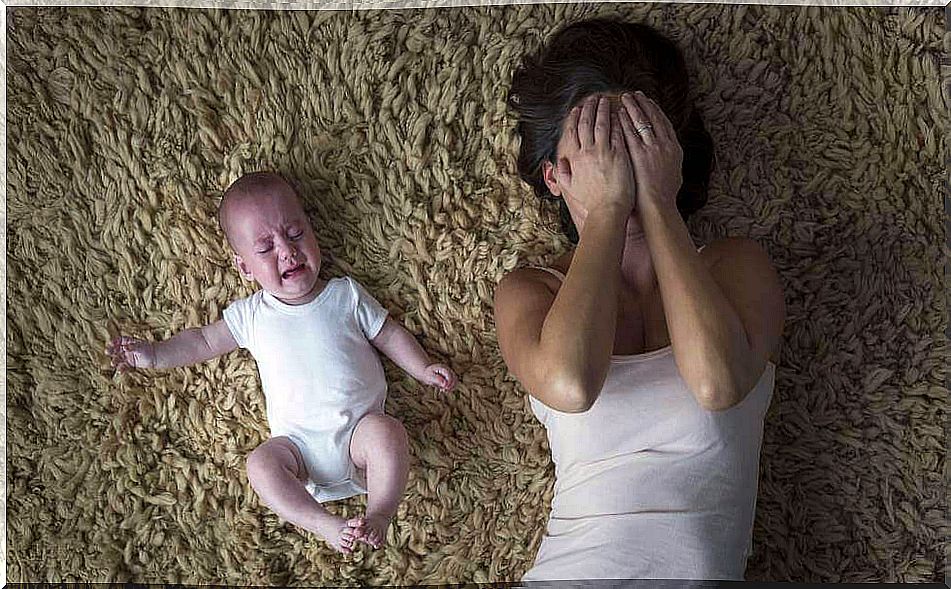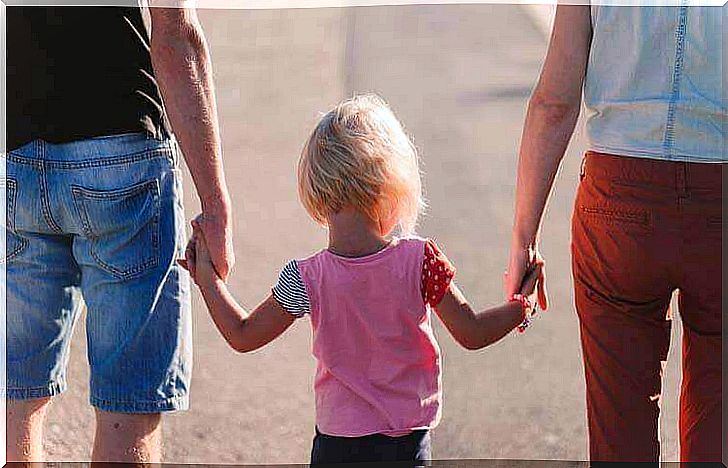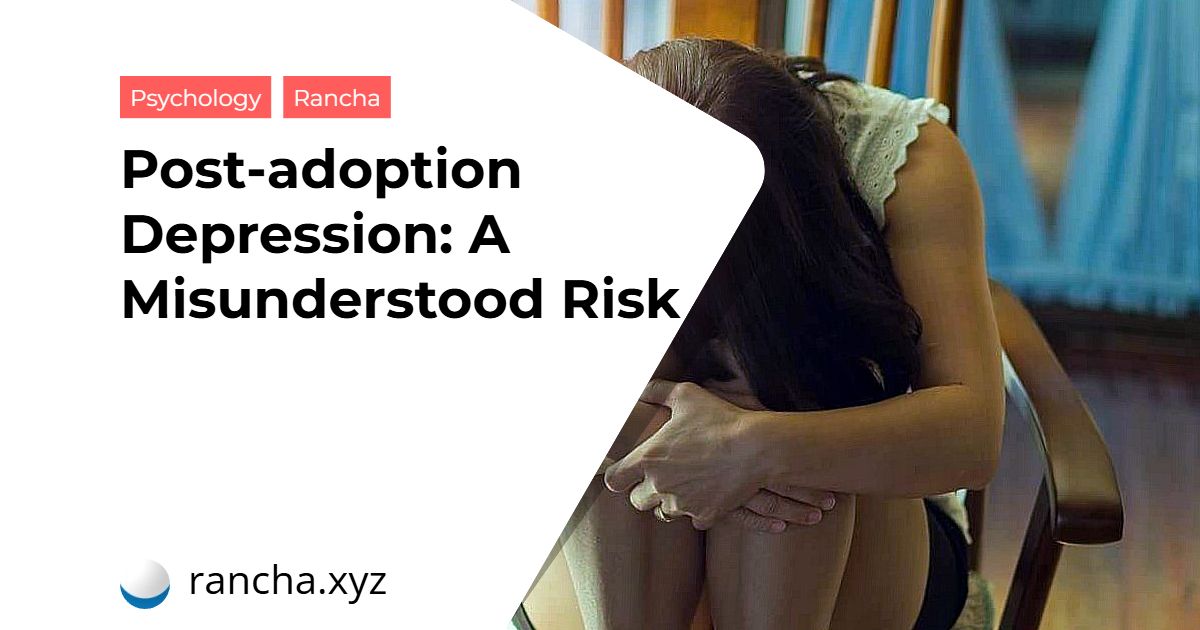Post-adoption depression is a common response—but not in all cases—to changes brought about by adoption. New experiences and ignorance of some of the adopted child’s needs can make the adoptive parents feel overwhelmed and produce this emotional response.
It is a challenge that is not free from physical and emotional burdens. Some people in this situation will need help. The arrival of a new child in the home can awaken feelings of joy, happiness, or euphoria. This happens with both biological and adoptive children.
In some parents, the predominant emotions may be those considered to be of negative value, such as sadness or frustration. Emotions that, on the other hand, are also registered in many biological parents after their child is born.
Unlike post-adoption depression, postpartum depression is recognized as a possibility after an uncomplicated pregnancy. In this sense, in recent years we have come a long way, as in many contexts and family nuclei the subject is openly talked about and it is considered from a medical perspective.

Between 50 and 80% of mothers who give birth may experience mild postpartum depression. 10% of these mothers can suffer this disorder in a serious way. The cause appears to be hormonal changes.
However, post-adoption depression does not enjoy the same social understanding, as it is somehow seen as more “illogical”. This type of depression is not as accepted, nor as understood.
This collides with statistics. The few surveys carried out so far show that there is a high percentage of parents who suffer from this problem.
When there is no understanding or support
Feelings of connection and attachment to the adopted child usually arise between the second and sixth month after the adoption. Adoptive mothers, when at this point, do not usually ask for help: they are afraid that someone might think they are unprepared or dissatisfied.
Thus, many of these first-time mothers are afraid to tell someone, especially psychologists and social workers, about these difficulties in adapting to their new life.
They think that if they express their problems, people will doubt their ability to take responsibility for a foster child. In this way, the situation, which is already quite complex, can get even more complicated.
For example, let’s think that, generally, the help that biological parents usually receive from their social circle after giving birth has nothing to do with the help that adoptive parents receive.

Family members of adoptive parents may not understand why the mother is not fully happy now that she finally has what she had wanted for so long.
These parents then suffer in silence and die of shame and guilt due to the fear of letting their family down. In fact, they are the ones who often ask themselves the same thing as their relatives, without finding an answer.
Causes of post-adoption depression
Why is there such a high percentage of parents who suffer from this type of depression? Most adoptive parents spend years trying to adopt a child. Your lingering hopes, dreams, and desires can raise unrealistic expectations about what it really is to be a parent.
New parents can feel guilty about their ambivalent emotions. On the one hand, they love their new child, but on the other hand, they may feel upset or angry at this child if he doesn’t meet their expectations.
Believing in an instant bond with this new being, or in love at first sight, is unrealistic. Falling in love with an adopted child is like falling in love with a loving partner. The initial passion and euphoria are quickly replaced by the slow and difficult process of adjusting to the daily presence of another human being.

How to Cope with Post-Adoption Depression
It is not always easy to adapt to the changes inherent in adopting a child. However, there are some guidelines that can be of great help. Are the following:
- When returning home with the child permanently, make sure you have enough time to share.
- Don’t feel guilty about not wanting to receive visitors. On the other hand, accept the help you need. You won’t be a worse mom or dad because you can’t do everything yourself.
- Try to make maternity leave as long as possible.
- Get enough sleep and exercise. Physical activity has been proven to improve our mood.
- Go out with your child for a walk. Have fun together and create emotional bonds.
- Don’t be afraid to talk about what you feel. Contact adoption or adoptive parent discussion groups. Look for people with experiences similar to yours.
- Ask your family circle and friends to understand and respect your new decisions. Tell them that you listen to them, but that you have your own discretion, and that you will be the one who has the last word when it comes to your child.
- Make time for yourself and your love partner, in case you have someone. If you have more children, don’t neglect them either.
- Accept your limitations and don’t be afraid of failure. We are human beings, we are not perfect in anything and, obviously, we also fail in the task of educating.
As already mentioned, post-adoption depression is a mood disorder that, in many cases, is fueled by a lack of understanding (both of the surroundings and of the people who suffer from it).
Adoptive parents may fear that their new child will not live up to the expectations created, and this can make them feel deeply sad and despondent.
If you are in this situation, the best thing to do is to ask an expert for help. Don’t be afraid to talk about it. Health professionals will understand your case and will be able to help you in whatever way possible.
 rancha.xyz Be free to choose their own route to self-knowledge, health and balance of body and soul.
rancha.xyz Be free to choose their own route to self-knowledge, health and balance of body and soul.




